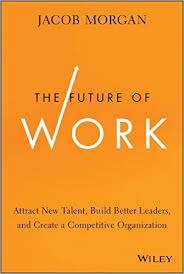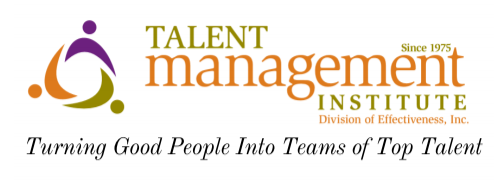The Future of Work: Attract New Talent, Build Better Leaders, and Create a Competitive Organization, hardcover – (2014)
Author: Jacob Morgan
Reviewer: Bob Moore, CMC
Employees have had to adapt to managers and managers have had to adapt to organizations throughout the history of business. This concept is reversed in the future with managers and organizations adapting to employees. In order to succeed and thrive, organizations must rethink and challenge everything they know about work. Years ago, Peter Drucker asserted, “The best way to predict the future is to create it.” Drucker also coined the term, “Knowledge Worker” in the 1970s and Naisbitt reinforced this idea in his best-seller, Megatrends (1982), when he predicted the shift to the “Information Age.”
Yogi Berra is credited with saying that the future ain’t what it used to be. However, through the rear-view mirror, it is still the same—adapt or cease to exist. For example, after Henry Ford introduced the Model T in 1908, the owner of the #2 buggy whip manufacturer recognized its potential implications and began preparations to manufacture and market automotive products. Within a year, four of the other five were out of business.
Morgan says, “The future employee is asking. What is work? What is an employee? What is leadership?” And business leaders must also ask and answer these same questions. The Millennials that are entering the workforce in droves and have become the largest age group in the workplace, expect answers to these questions and more. Millennials have different values, ideas, and expectations about work. Companies need to realize that it’s not just the fact that millennials are entering the workplace that is so significant, it’s the fact that the sheer number of them is going to dominate the workforce. This acts as a powerful catalyst for companies to rethink how things get done.
Morgan thinks there are 5 trends shaping the future of work that all play off of each other and impact each other:
- Millennials entering the workplace
- New behaviors
- Mobility
- Technology
- Globalization
He says, “When considering these five trends, we can certainly say that millennials have new values and ideas but those are influenced by things such as technology, new behaviors, and mobility. All five of these things are intertwined and are going to impact employees, managers, and organizations as a whole. Anything driven by the five trends means that organizations will HAVE to adapt out of necessity if they want to succeed. None of these are ‘nice to haves’.”
The Future of Work has something for everyone – entrepreneurs, managers, freelancers and entry-level employees of large organizations. While the lessons may be difficult, failure to apply them could be a serious professional risk.
Consider the following benefits you can expect:
- Stay ahead of the competition
- Create more effective leaders
- Attract and retain top talent
- Adapt to the changing workforce
- Build the organization of the future
Click here to order your copy from Amazon for $14.45 (256 pages, hardcover).

